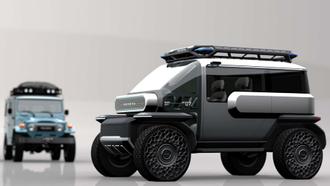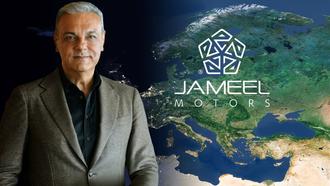Jameel Motors: leading the pack in the Moroccan EV market

Jameel Motors cemented its position at the front of the grid in Morocco’s sustainable mobility transformation in 2023, after signing a distribution agreement with MG Motor in February. In doing so, Morocco became the 10th regional market for the British-born brand’s range of award-winning cars, which includes electric vehicles (EVs) and plug-in hybrid electric (PHEVs) models, as well as several combustion engine models.
We caught up with Salma Moukbil, General Manager, Jameel Motors Morocco, to discuss the partnership with MG and what it means for Jameel Motors and the wider automotive market in Morocco.
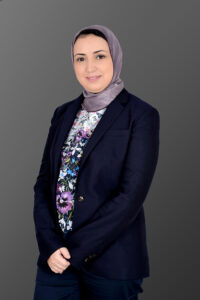
General Manager
Jameel Motors Morocco
Q. What is the history of Abdul Latif Jameel in Morocco?
Abdul Latif Jameel has been present in Morocco since 1995, when it launched the Toyota distributorship in Casablanca, its first in the country. It soon expanded to the capital, Rabat, and other major cities.
The business now operates from 22 locations nationally and includes aftersales, parts and pre-owned vehicles, as well as new car sales. It only represented Toyota-brand vehicles until 2018, when we then expanded by introducing the Lexus brand.
The exciting new partnership with MG Motor will introduce our third automotive brand in the country.
Q. How long have you been with the business?
I joined as a management trainee in 2005, after studying marketing and finance at Al Akhawayn University in Morocco. I progressed through roles in sales, aftersales, workshop and marketing before being appointed to my current role.
Q. What are the characteristics of the automotive market in Morocco?
The total volume of the car market is around 170,000 new passenger vehicles annually, of which around 150,000 are imported vehicles. The rest are manufactured locally. The active vehicle parc is around 4.2m, according to a 2022 study.[1]
Historically, diesel has been by the far the most popular fuel in Morocco. Until very recently, around 96% of new vehicle sales were diesel – far higher than most other similar markets, including Europe.
Q. Have you seen the same move towards more sustainable vehicles, like electric vehicles and hybrids, which is occurring in other countries?
The trend towards EVs and hybrids is relatively recent in Morocco compared to many other markets. Diesel was always the most popular choice, but that is beginning to rapidly change.
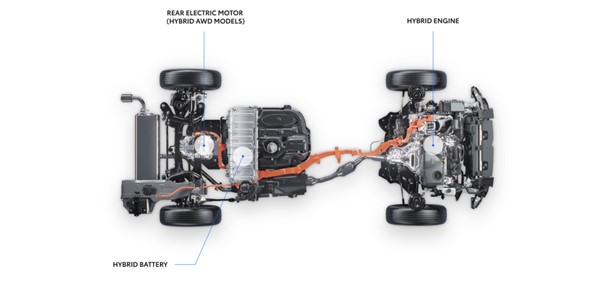
Jameel Motors is at the forefront of these changes. We started selling Toyota hybrid vehicles over five years ago – the first in the country to introduce this new technology to the Moroccan motorist. At that time, it was very disruptive, and we had to work hard to establish hybrid models in the market.
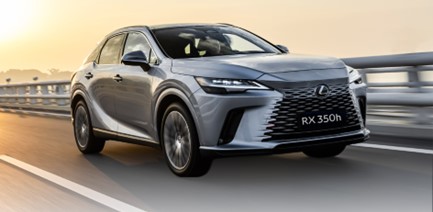
Five years on, the trend is now very clear – the market is moving more and more towards hybrids and EVs. Hopefully, we can leverage our position as the number one sustainable vehicle distributor to capitalize on these opportunities.
This is core to our strategy moving forwards in 2024.

The consumer market is undoubtedly ready for hybrids and EVs. Many new EV brands are entering the Moroccan market. But we’ve been here many years and have built a strong reputation. This gives us an advantage of being recognized as the ‘hybrid pioneers.’ Hybrids and EVs still only make up around 5% of total new vehicle purchases, but it’s expected to more than double in the next two years, or so.
Q. How has the Jameel Motors business in Morocco changed during this period?
When Toyota announced in 2017, that it was ceasing all diesel models in our market, we had to move fast to reshape our entire strategy within just two years. At that time, diesel models accounted for around 60% of our sales. We put a big focus on marketing, training, and awareness raising, both internally and externally. We had to retrain our own sales teams to be proud to sell hybrids rather than traditional vehicles and we had to raise awareness among the public of the many benefits of hybrid and electric vehicles.
It was a huge challenge, but one that we are very proud to have achieved. We’ve been able to replace that 60% with hybrid vehicles, and it’s growing. We used to be number 10 in the market. Now we are number 7.
Today, our success is considered as the benchmark for Toyota in Africa for hybrid and electric vehicles. We have shared many examples of our best practice and we have been guest speakers for Toyota on many occasions to explain how we achieved this so successfully in such a short space of time. Even at the level of Toyota Motor Corporation globally, we are considered a very good example of how to introduce a new vehicle technology in a strong diesel market.
Q. Is the Moroccan government supporting the transition to greener vehicles?
Yes, it has introduced some incentives, but they are quite limited and not particularly convincing for consumers. For example, it has reduced the customs duty on Japanese hybrid vehicles from 17.5% to 2.5%, which sounds great. But thanks to free trade agreements, diesel vehicles imported from Europe pay 0% customs duty. European brands dominate the market, accounting for around 50% of sales – all with 0% customs duty. So, although the reduction on Japanese hybrids is very welcome, it still doesn’t match the retail positioning and incentives available on European diesel brands.
It is also supporting the move to sustainable vehicles in two other ways. It is moving a proportion of its own vehicle fleet to hybrids and EVs, so we are getting many enquiries from various government ministries and departments. This is a dramatic statement.
It is also working on an incentive scheme based around vehicle CO2 emissions, but the details have not been released yet. Both these initiatives will help to grow the market in Morocco.
Q. How developed is the infrastructure for EVs in Morocco?
The infrastructure is one of the most important elements to be developed to increase the penetration of EVs in particular.
This is a hot topic in Morocco and AIVAM, the Moroccan automotive industry association has had some preliminary discussions with the government but nothing has been announced yet.
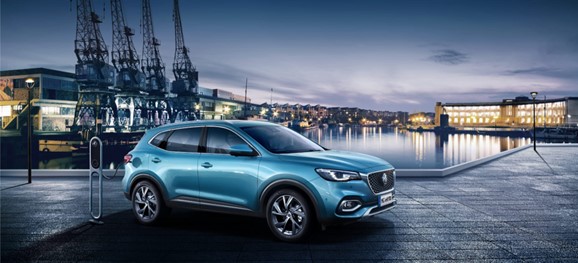
For the time being, there are two private companies that are driving the expansion of vehicle charging points. One of them is linked to Afriquia, the number one gasoline distribution and fuel station company. So, there are charging points at all Afriquia fuel stations. The other is the main distributor for Renault and Dacia in Morocco. Together, these companies provide around 130 or 140 vehicle charging points across the country, mainly in existing fuel stations. Of course, many people charge their EV at home via solar panels, so they are also reducing their CO2 emissions that way.
Q. You signed the distribution agreement with MG in February 2023. What does this new partnership mean for Jameel Motors Morocco?
The partnership with MG Motor enables us to diversify our business to capitalize on the development of the automotive market in Morocco. We studied the MG model portfolio and could see that it was the ideal complement to our existing Toyota and Lexus line-up.
MG offers some very popular EV models as well as some exciting gasoline models. We had no pure EVs in our portfolio at that time, while some of our most popular gasoline models, like the Toyota Yaris, were being phased out. Partnering with MG enabled us to plug these gaps in our offering and bring something new and exciting to the Moroccan consumer. The pricing is very competitive, too. When you look at the price-to-quality ratio of MG, it is very attractive to buyers in a developing country like Morocco. We started talking to them in 2019/20, during the COVID-19 pandemic. It took us over two years to finally agree the deal and sign the agreement.
Q. What challenges do you see in growing the MG brand in Morocco?
Before our partnership with MG there were only two Chinese brands in the market – Chery and DFSK. Over the past year or so, however, there has been a significant influx of Chinese brands. Geely launched in 2023, as did BYD. Changan has announced it will be entering the market. So, too has Lynk.
One of the challenges facing some of the Chinese brands is about how they are perceived in terms of quality. MG has a considerable advantage in this regard.

The brand has deep origins in the UK, where it was established. William Morris, a mechanic who turned to be an industrialist and Cecil Kimber, a visionary salesperson formed a partnership that gave birth to the British car brand: “Morris Garages” (MG).
Since 1924, MG has built a reputation both on and off the racetracks, and now celebrates the brand’s 100th anniversary.
It also has a strong presence in France, which, of course, has close links with Morocco, and also Spain, our nearest European neighbor. Having this European heritage gives the brand a unique position and differentiation in the market, as it is not seen as a ‘purely Chinese’ newcomer brand.
We also invested in a high-profile marketing campaign fronted by a very popular Moroccan footballer, Sofyan Amrabat. This, too, helped us generate a perception of trust and reliability in the brand.
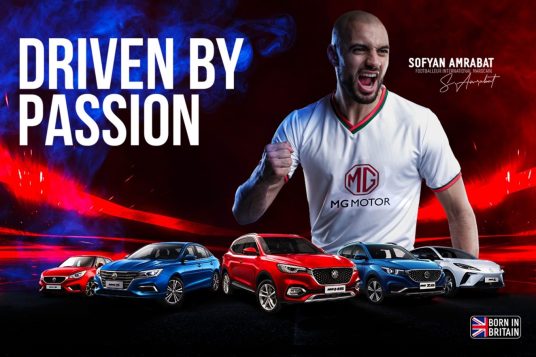
Q. What are your plans for the future growth of Jameel Motors in Morocco?
Morocco is a politically stable, pro-business country. It is the number one automotive exporter in the region. It has very close links to Europe, for which it is a major supplier, and it is a gateway to Africa, with which it has numerous free trade agreements.
Considering these strengths, the sustained economic growth and the fact the penetration of automobiles is still relatively low, we believe the market has enormous potential for further growth. This provides Jameel Motors with a solid platform for diversification and investment to capitalize on these opportunities.
Q. What are your priorities for the next two or three years?
First and foremost, our aim is to develop the business further. This will include growing the MG brand in Morocco, as well as further growth of Toyota and Lexus. We see huge opportunities to expand the Lexus business, in particular, where sales are currently growing in double digits.
Jameel Motors itself has grown by over 40% in 2023 and we are the fastest growing brand in Morocco, and number one in terms of EVs. The AIVAM predicts that in 10 years, the hybrid and pure EV market will constitute 30% of the market. We aim to build on these strong foundations and are currently exploring a number of ideas that for the time being are confidential. In short, we are looking ahead to the next period of growth with a combination of confidence, optimism, and excitement.



